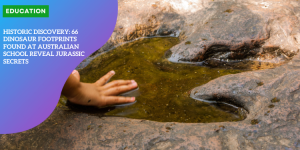Staying Curious Could Help Protect Against Alzheimer’s: What New Research Reveals
A Surprising Link Between Lifelong Learning and Brain Health
Curiosity might be more than just a personality trait — it could be one of the most powerful tools we have in protecting the brain from degenerative diseases like Alzheimer’s.
That’s the conclusion of a compelling new study conducted by researchers at the University of California, Los Angeles.
Their findings suggest that maintaining an interest in learning and seeking new information, particularly into later life, can significantly reduce the risk of developing Alzheimer’s and other forms of dementia.
For decades, it has been widely believed that curiosity naturally fades as people age.
But this research not only challenges that assumption, it also provides insight into how different forms of curiosity affect cognitive health across the lifespan.
With a growing ageing population in the UK and rising concern around dementia care, these findings offer hopeful and actionable strategies to promote healthier ageing.
The Study That Is Changing What We Know About Curiosity
How Curiosity Was Measured Across Ages
Published in the scientific journal PLoS One, the study examined both “trait curiosity” — the general tendency to be inquisitive — and “state curiosity,” the momentary desire to learn something new in a specific context.
Researchers recruited a wide sample of participants aged 20 to 84, with an average age of 44.
Participants began by completing a psychological questionnaire designed to assess their trait curiosity.
They were then presented with challenging trivia questions they were unlikely to know, such as “Which country was the first to grant women the right to vote?”
After offering a guess, each participant was asked how eager they were to know the correct answer before it was revealed.
The researchers discovered a strong connection between state and trait curiosity.
Those who were generally more curious also reported greater interest in learning the answers to the trivia questions — and vice versa.

Curiosity Patterns Shift Across Life Stages
The researchers found that state curiosity — the desire to know something in the moment — changed significantly with age.
It declined during early adulthood, dipped around midlife, and then increased again from middle age into older age.
This pattern may reflect the changing goals and responsibilities that come with different life stages.
In younger years, individuals are often focused on acquiring skills for education, careers, and family life, which requires broad learning.
But as people grow older and complete these stages, they may become more selective and deliberate in their learning — diving deep into particular areas of interest.
This selective learning doesn’t mean people are losing their curiosity — it may actually be sharpening it.
Why Curiosity Matters for the Ageing Brain
A Potential Protective Factor Against Dementia
According to the researchers, people who consistently remain curious about the world tend to experience greater cognitive resilience as they age.
This means they maintain sharper memory, stronger attention, and more adaptable thinking well into old age.
Crucially, curiosity may encourage behaviours that stimulate the brain, such as reading, engaging in conversation, exploring hobbies, or seeking new experiences.
These activities can contribute to the formation of new neural pathways — a concept known as cognitive reserve.
Cognitive reserve is a key protective factor in delaying the onset or reducing the severity of diseases like Alzheimer’s.
By staying mentally active through curiosity, individuals may build up enough reserve to compensate for early signs of brain deterioration.
This supports long-standing advice from neurologists and dementia specialists in the UK: keep learning to keep your brain healthy.
Curious Minds Stay Engaged
People with high levels of curiosity also tend to maintain more social interaction, another factor shown to reduce the risk of dementia.
Whether it’s participating in community groups, exploring local history, or joining a book club, curiosity often leads people to seek out others and learn together.
This social and mental engagement keeps the brain working and may even slow age-related decline.
Debunking the Myth That Curiosity Fades With Age
The Psychology Literature vs. Real-World Behaviour
Co-author Dr Alan Castel, a psychologist at UCLA, noted that traditional psychology literature has often portrayed curiosity as something that declines steadily with age.
However, in observing real older adults, the researchers saw a different picture.
Many older participants showed significant curiosity, particularly when it came to learning about memory and ageing itself.
Rather than withdrawing from intellectual activity, they were energised by it.
Dr Castel explains that the findings align with selectivity theory — the idea that as people age, they don’t become less curious but more selective about what they choose to engage with.
They no longer feel the need to know everything.
Instead, they invest time in learning what matters most to them.
This more focused approach could actually be more cognitively beneficial, especially when it supports emotional fulfilment and personal growth.
How to Build and Maintain Curiosity at Any Age
Simple Habits to Train Your Brain
The encouraging part is that curiosity can be cultivated and strengthened throughout life, regardless of age.
Here are some practical ways to do so:
-
Read widely: Explore topics outside your usual interests.
-
Ask questions: Make it a habit to question the world around you—ask why, how, and what if.
-
Learn a new skill: Explore something unfamiliar—pick up a new language, learn an instrument, or dive into a fresh hobby.
-
Challenge assumptions: Seek out different perspectives.
-
Keep a journal: Reflect on what you learn and what you’d like to explore.
-
Stay socially engaged: Talk to others about ideas and topics you enjoy.
These habits not only keep your mind active but can also reignite a childlike sense of wonder that fuels continuous mental growth.
Digital Tools to Support Lifelong Learning
There are countless online platforms and apps available to support learning and curiosity in older adults.
From virtual museum tours and history podcasts to YouTube tutorials and online courses, the internet offers accessible, low-cost resources to keep the brain engaged.
Even social media, when used intentionally, can offer exposure to new information and communities that share similar interests.
Implications for Health and Policy in the UK
Public Health Campaigns Could Encourage Curiosity
As the UK grapples with an ageing population and rising dementia rates, promoting curiosity could become a valuable public health strategy.
Incorporating curiosity into community programmes, adult education, and NHS wellness services might offer a simple yet effective way to support cognitive health.
Libraries, community centres, and adult learning providers already offer many resources that could be better utilised with this goal in mind.
A Role for GPs and Carers
Healthcare professionals and carers could also play a vital role in encouraging curiosity.
By suggesting cognitive activities during routine check-ups or care plans, GPs can help older adults understand that keeping their mind active is just as important as exercise or diet.
Likewise, carers can promote daily curiosity through puzzles, games, questions, or joint activities that engage memory and thinking.
Conclusion: Curiosity Is Not Just a Trait — It’s a Tool
The message from this research is clear: curiosity isn’t something we outgrow — it’s something we can grow into.
While age-related cognitive changes are real, the brain retains remarkable capacity for learning, engagement, and adaptation.
Staying curious about the world doesn’t just enrich your daily life — it could be one of the best ways to protect your brain.
In a time when Alzheimer’s and dementia are among the greatest challenges facing older generations in the UK, the simple act of staying interested and inquisitive might just be a powerful form of prevention.
Whether it’s through trivia questions, exploring a new topic, or rekindling an old passion, the science shows that curiosity is not only healthy — it’s essential.






